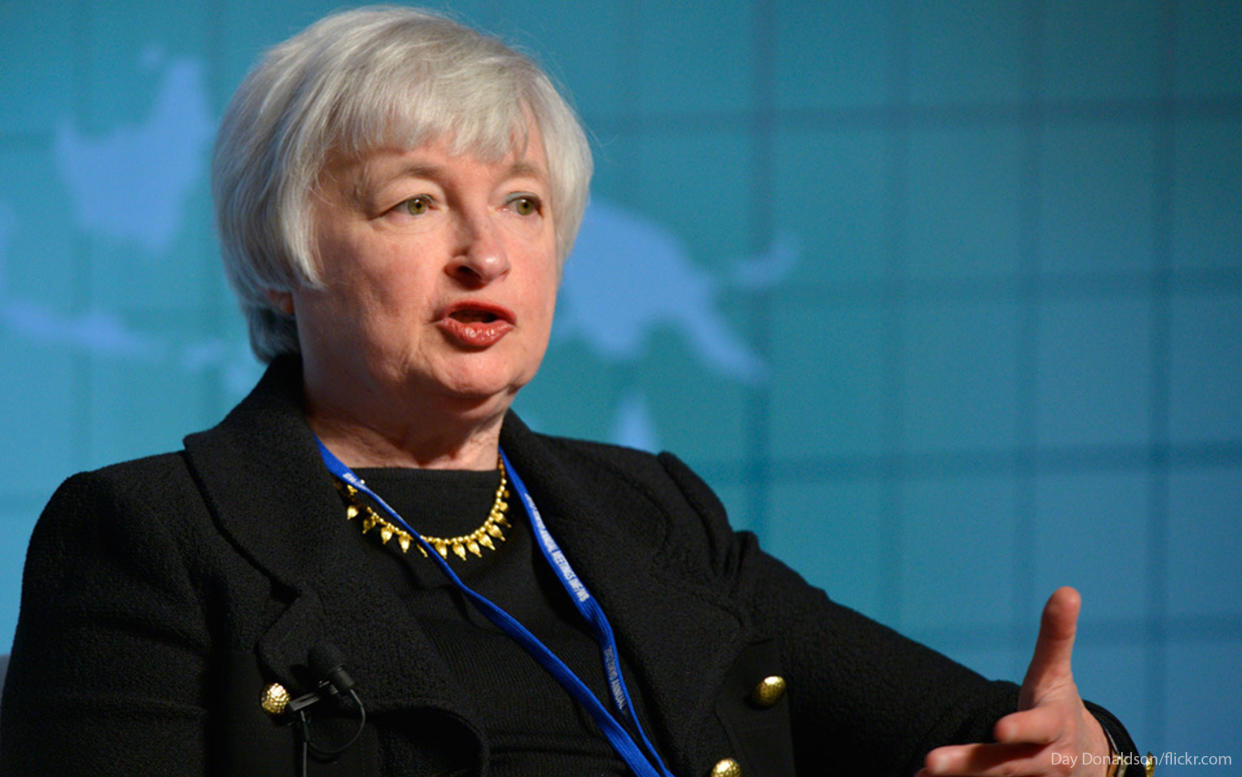Ahead of G7 Summit, Talk Centers on Yellen, Inflation and Amazon’s Global Tax Liabilities

Two of the biggest topics that came out of Saturday’s Group of Seven Finance Ministers and Central Bank Governors meeting in London, which came ahead of the G7 Summit which begins June 11, involved U.S. Treasury Secretary Janet Yellen’s take on inflation and concerns that Amazon might avoid major global tax liabilities following a historic corporate tax deal between nations.
See: Interest Rates May Need to Go Up – Yellen’s Comments And How They Affect You
Find: How Should Your Budget Change With Increasing Inflation?
In an interview with Bloomberg News on Sunday after returning from the meeting, Yellen said President Joe Biden should press forward with his $4 trillion spending plan to boost the economy despite fears that the plan will increase inflation and lead to higher interest rates.
Yellen said a slightly higher interest rate environment “would actually be a plus” for both society and the Federal Reserve. She also said she would “not give up” on the administration’s spending packages, adding that they are “not meant as stimulus” but as “investments to address long-standing needs of our economy.”
As Bloomberg reported, the debate surrounding inflation has intensified between Yellen and others who say rising prices are the result of temporary outliers created by the COVID-19 pandemic and critics who argue that trillions in government stimulus could create a long-term spike in prices.
See: Why You Shouldn’t Worry About All Those Price Hikes in the News
Find: OPEC Increases Production as Oil Prices Begin to Impact Summer Travel Plans
“We’ve been fighting inflation that’s too low and interest rates that are too low now for a decade,” Yellen told Bloomberg, adding that the administration wants to return to a normal interest rate environment.
Meanwhile, Amazon grabbed headlines amid concerns that the retail giant might pay significantly lower taxes in some of its top markets unless global leaders close a loophole in a landmark deal reached at the finance minister’s meeting on Saturday. As The Guardian reported, the deal aims to force large companies such as Amazon, Apple, Microsoft, Google and Facebook to pay more taxes worldwide.
The deal is comprised of two “pillars” — one that would make companies pay a percentage of their profits in markets where they have a small corporate presence but register high sales, and another that would establish a global minimum corporation tax.
See: What Is Tax Repatriation and How Does It Work?
Find: Costco, Amazon and 16 Other Companies That Raised Their Minimum Wage to $15 (or More)
But a communique from G7 ministers raised concerns that the first pillar would only apply on “profit exceeding a 10% margin for the largest and most profitable multinational enterprises” — a restriction that could rule out Amazon because its profit margin last year was only 6.3%. The company’s online retail business is designed to operate at low profit margins so it can capture more market share.
Richard Murphy, a visiting professor of accounting at the Sheffield University management school, told The Guardian that the 10% profit threshold is “inappropriate” because different companies have different business models. He also said that current approaches to reporting profits in different countries are “easily gamed.”
See: Facebook, Apple Post Record Earnings, Beat Estimates — What Does That Mean for Your Portfolio?
Find: Yellen Calls for a Global Corporate Tax Minimum — Could She Stop Companies from Moving Overseas?
But Yellen told Reuters on Saturday that she expects Facebook and Amazon to be covered by the proposal.
“It will include large profitable firms and those firms, I believe, will qualify by almost any definition,” she said.
More From GOBankingRates
This article originally appeared on GOBankingRates.com: Ahead of G7 Summit, Talk Centers on Yellen, Inflation and Amazon’s Global Tax Liabilities
